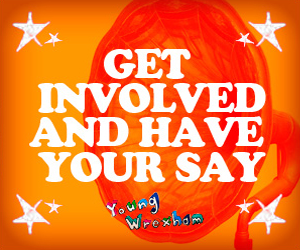Information » Money » Banks and Building Societies » Cheque Books
In This Section
Cheque Books
- A cheque book is a method of payment that you get with certain bank or building society accounts
- The book consists of a number of payment slips (cheques) that allow you to pay for goods and services without handing over any cash
- You will also need to show the cash or debit card assigned to the cheque book during the transaction/purchase
- The amount you write on the cheque will then be taken out of your account
- You must have enough money in your account to pay for the amount on the cheque or it will be refused or 'bounce'
- Most accounts only offer cheque books to people over 18 but check with your bank or building society for their policy
- When writing a cheque, make sure you fill in all the required spaces using a pen, not a pencil. This is to stop people altering what you have written. Also draw a line through any blank spaces on the cheque so people can’t add extra numbers or names, and add details (such as a reference or account number) to the payee line after you’ve written the name of the company if the cheque is written to an organisation, bank or building society. This makes sure the money ends up in the right place
- If you make a mistake, destroy the cheque and write a new one
- Don't forget to also complete the cheque stub. This will help you if the bank makes any mistakes and keep a record of how much you are spending
- As with any payment method, it is very important to look after your cheque book, never let anyone borrow your cheque book or car
Paying money: you can pay anyone with a cheque, so long as they choose to accept it. Some businesses have decided not to accept cheques because there’s a bit of risk involved if the cheque bounces. The Cheque Card Guarantee Scheme – which used to offer retailers protection – was withdrawn in June 2011
Accepting money: if someone wants to pay you with a cheque, think carefully before you accept it. You should only accept cheques from people you trust, because if it turns out that the cheque is a fake, or the person doesn’t have enough money to pay it, it might be difficult to get hold of the money.
When you write a cheque, the money won’t leave your account until the person you give it to pays it into their bank or building society account – which could be up to six months later. Make sure you have enough money in your account to cover the value of the cheque until the person has paid it in and the money has been deducted.
The money usually leaves your account three working days after the person pays in your cheque. If you pay a cheque into your account, you’ll be able to use the money four working days later – but you won’t be sure the cheque has cleared (the money is really yours) until six working days after you’ve paid it in. If you use the money in the meantime, you may have to pay it back.
For more information on cheques and banker’s drafts, check this article from the Money Advice Service.
You can contact the Money Advice Service on 0300 500 5000 (or 0300 500 5555 for Welsh) Mon - Fri 8am-8pm, Sat 9am-1pm. There’s also an online chat function on their site.
You can contact Meic for free via online chat, text (84001) or phone (080880 23456).








